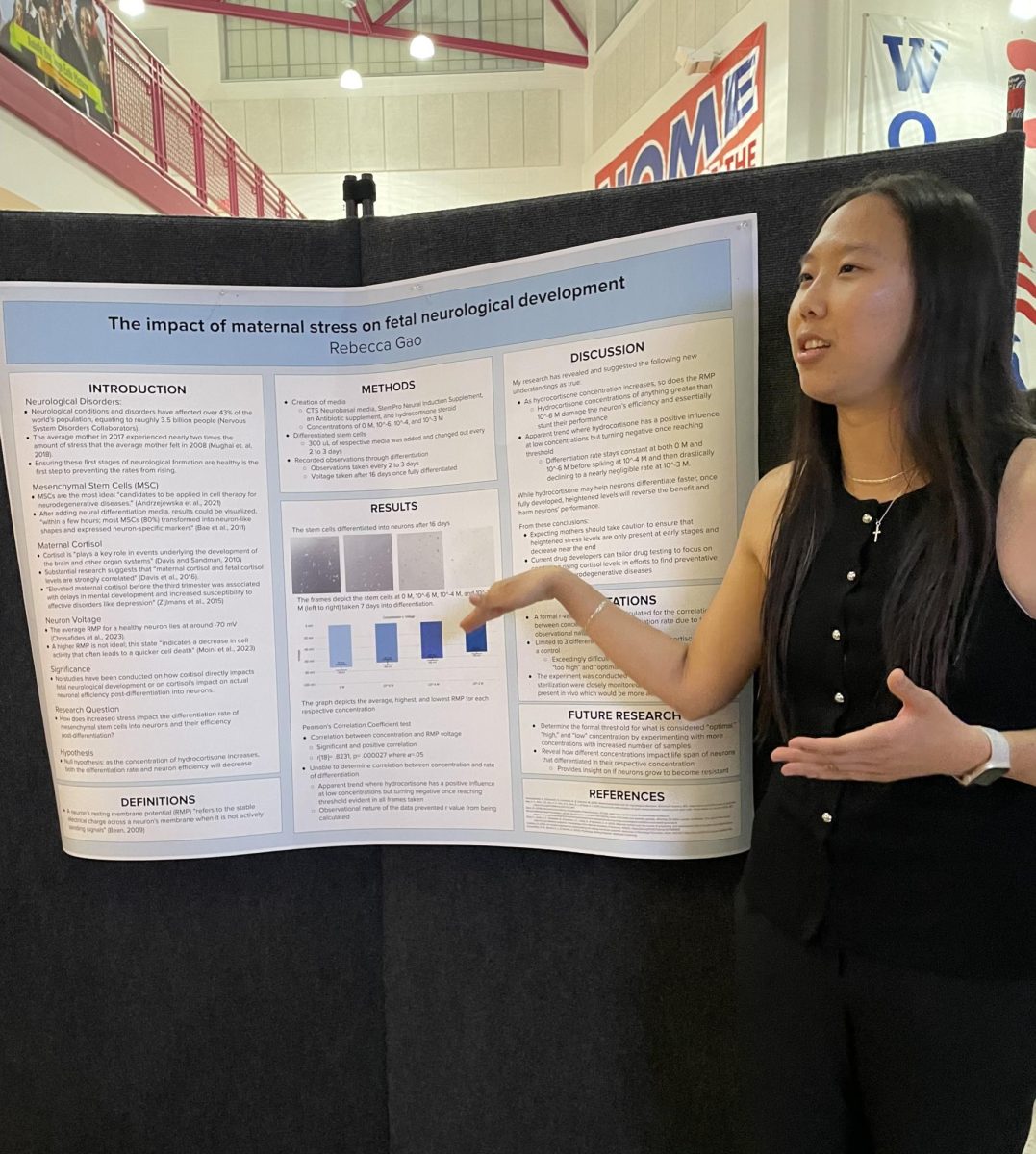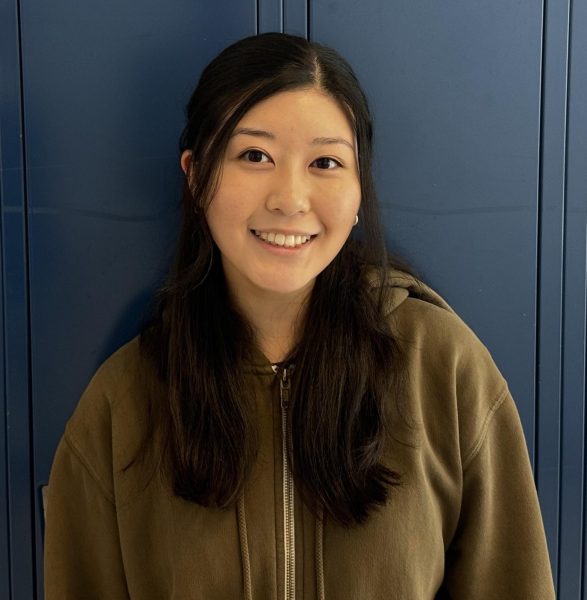How many high school students can say that they’ve conducted hands-on research in a lab in order to study fetal neurological development, baked and taste-tested 10 apple pies for a class or have written a 30-page academic paper before they’ve gotten their driver’s license?
All of the students enrolled in AP Research this year can.
This unique class gives students the chance to spend the entire school year conducting independent research and writing a final research paper about any topic of their choice. The sky’s the limit; from rock climbing to romance TV shows to GMOs, students are able to study anything that interests them within the ethical guidelines. AP Research students choose their topic at the start of the school year and spend the rest of the fall doing extensive background research on their subject. “AP Research is a class where students have the ability to explore a topic of their choice on a deeper level. Unlike other classes, AP Research gives us the freedom to ask a question and then go answer it ourselves,” senior Rebecca Gao said.
Another special aspect of AP Research is that there’s no set way to conduct the research needed to write the final paper. As students research their topic, they choose the research method that they feel would best answer their research question. For example, someone looking to compare peoples’ opinions on a subject would use a survey while someone else looking to answer the question of why a scientific phenomenon occurs has the opportunity to work with a professional in the field and gain hands-on experience. This was the case for Gao; she worked with Dr. Carlos Offutt, who runs the MCPA DNA Resource Center, to explore the impact of maternal stress on fetal neurological development.
The exclusive experience was highly valued by Gao and other AP Research students. “It’s a good way to express your passion and experience it professionally, which is something hard to get in high school. High school doesn’t introduce you to a real life job or experience in a field of study, whereas by creating your own study, you are able to allocate time in school to pursue something you’re personally interested in and develop skills in the field that are crucial for post-graduation,” junior Lauren Yao said.
After students finish gathering background information, they get to work on drafting their paper in the winter. This paper-writing period lasts all the way until the submission deadline to College Board on Apr. 30, so students must pace themselves wisely to ensure that they complete their paper in time. “AP Research is a very relaxing but studious class. There’s a lot of flexibility in the work process, but it also teaches you how to manage your time wisely,” junior Mia Yang said.
However, before students submit their final research paper, there’s one more task they must do that counts toward their AP score: an individual presentation detailing their study to AP Research teachers Michelle Hanson and Brett Bentley. This presentation, titled the Presentation and Oral Defense, is worth 25% of their score, with their paper counting for the main 75%. In addition to the presentation, students also must prepare a poster to present at the annual AP Research Symposium, where they showcase their projects to their family and friends. Unlike the presentation, the poster for the symposium does not count toward their AP score, only for a completion grade for the class.
Finally, after the presentation and the symposium, students submit their final research paper to College Board. With no AP exam for the class like other AP classes have, this essentially concludes the course, leaving students with crucial research skills that they’ve gained throughout the year. “This course is important to students because it provides a solid introduction to what formal college-level research will be like. This way, they’ll have a solid understanding on how to format, how to word certain sections, the overall organization of a research paper and more,” Gao said.








![Editors-in-Chief Ahmed Ibrahim, Helen Manolis, Cameron Cowen, Alex Grainger, Emory Scofield, Hayley Gottesman, Rebekah Buchman and Marley Hoffman create the first print magazine of the year during the October press days. “Only a quarter of the schools in MCPS have programs that are like ours, a thriving, robust program. That makes me really sad. This is not just good for [the student journalists] to be doing this, it’s good for the entire community. What [student journalists] provide to the community is a faith in journalism and that continues for their lifetimes," Starr said.](https://woottoncommonsense.com/wp-content/uploads/2025/10/wmpoFTZkCPiVA3YXA4tnGoSsZ4KmnKYBIfr18p3l-900x1200.jpg)
